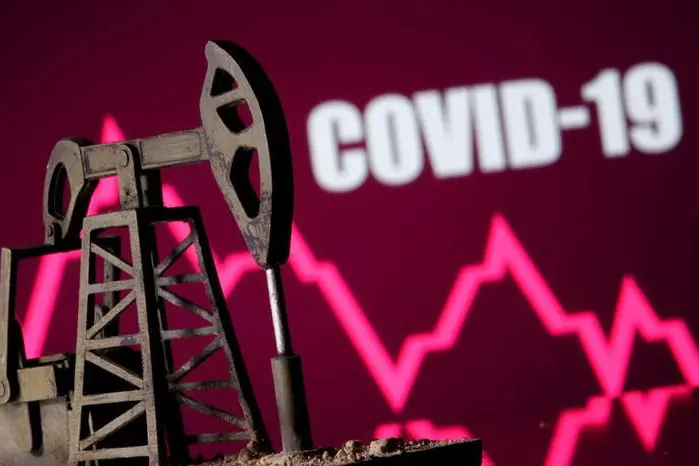PHOTO
Standalone credit profiles of GCC banks are set to weaken following the coronavirus pandemic and the drop-in oil prices, Fitch Ratings said.
GCC governments announced stimulus packages for their banking sectors to mitigate the economic impact of the pandemic, but Fitch expects banks' profitability and asset quality to deteriorate, leading to pressure on some banks' viability ratings.
“GCC countries announced monetary, fiscal and macro-prudential stimulus measures dwarfing any previously seen in the region. These are equivalent to significant proportions of GDP and could be increased if the crisis deepens,” the ratings agency said.
For example, the UAE and Saudi Arabia announced support packages of $77 billion and $56.5 billion respectively. This is over 15 percent of GDP for the UAE and over 7 percent of GDP for Saudi Arabia.
More than 50,000 coronavirus cases have been reported in the GCC so far, as governments urge the public to stay indoors or observe social distancing.
Despite OPEC+ agreeing earlier in April to cut their output by 9.7 million barrels per day (bpd) for May-June, Brent oil prices have been trading this week near the $20 per barrel level, mainly on lower demand.
Fitch expects interest rate cuts and financial aid, such as temporary loan repayment relief, to help the sectors hit hardest by the economic impact of the pandemic, particularly SMEs and the private sector. However, the ratings agency said GCC banks' asset quality will deteriorate as not all borrowers will be able to weather the impact of the sharp economic contraction.
In addition to the oil sector, key non-oil sectors like real estate and construction, hospitality, transport, trade and retail are also vulnerable.
To cushion the impact of the coronavirus, most GCC central banks relaxed capital and liquidity requirements, and scaled back other lending restrictions.
“However, we view this as rating-negative as it could lead to weaker underwriting standards and higher risk appetite, and could ultimately result in weaker asset quality,” Fitch said.
The ratings agency believes that the most visible negative outcome of these measures will be the pressure on banks’ profitability.
“While asset quality will weaken, the true extent of loan performance deterioration will be masked by loan deferral programmes and regulatory permission for banks to apply large flexibility in impairment recognition under IFRS 9, aimed at avoiding excessive pro-cyclical impacts for what could be a fairly short-term shock,” Fitch said.
In the medium term, if the economic disruptions caused by COVID-19 and low oil prices remain in place, the ratings agency expects deteriorating asset quality to become more visible and banks' capital buffers to start to shrink.
“Liquidity could also come under pressure if GCC sovereigns and government-related entities (GREs) withdraw deposits from the banking system to support themselves, although we do not expect this in the short term,” Fitch said.
The ratings agency also expects some banks' viability ratings to come under pressure, it noted however that about 70 percent of GCC banks’ Long-Term Issuer Default Ratings (LT IDRs) are driven by sovereign support and would only be negatively affected by a sovereign downgrade.
(Reporting by Gerard Aoun; editing by Seban Scaria)
#Fitch #COVID-19 #Banks #GCC #Oil
Disclaimer: This article is provided for informational purposes only. The content does not provide tax, legal or investment advice or opinion regarding the suitability, value or profitability of any particular security, portfolio or investment strategy. Read our full disclaimer policy here.
© ZAWYA 2020





















